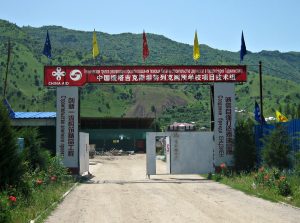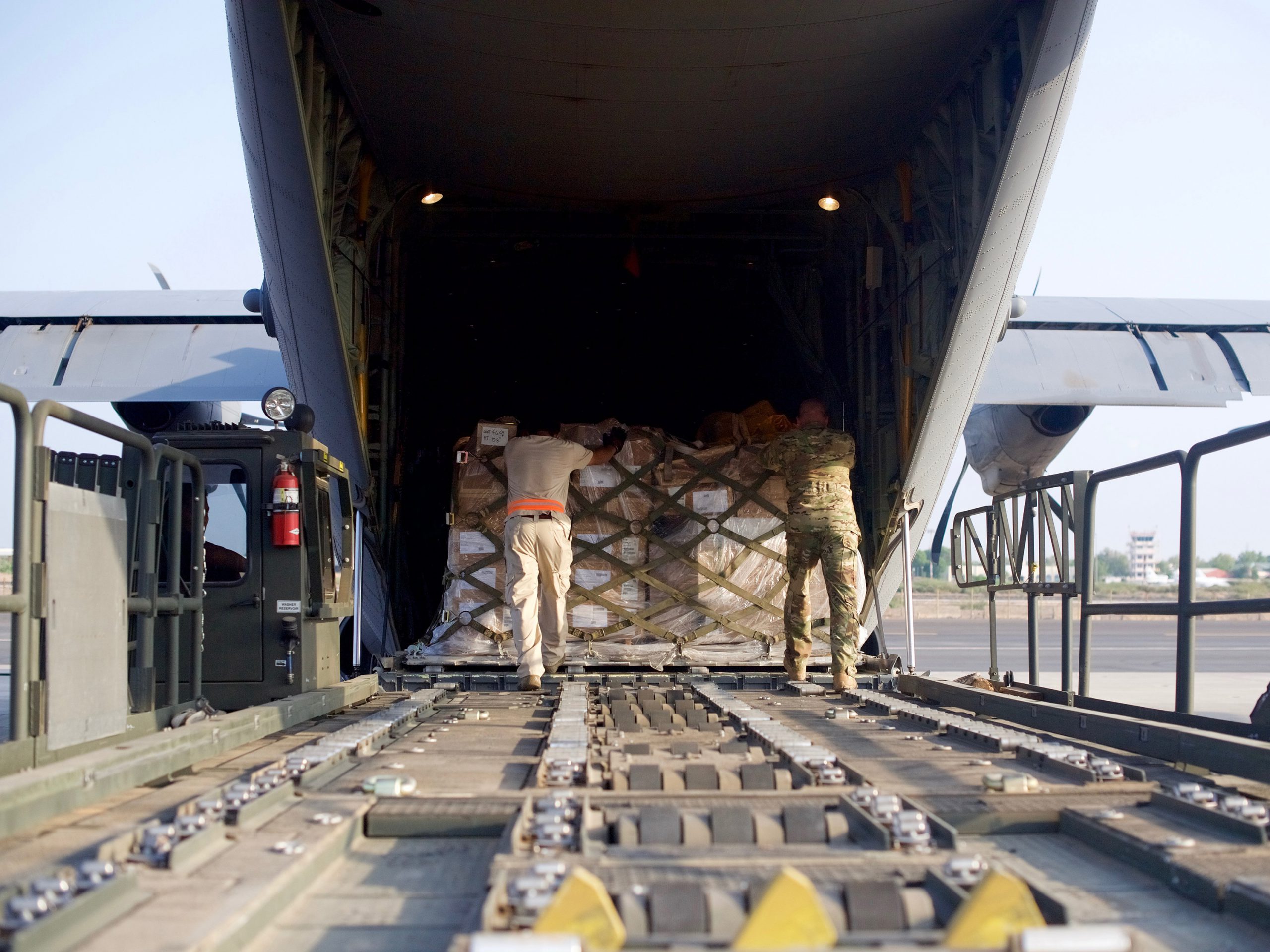Across the West, anxieties about immigration have begun to play an increasingly central role in popular discourse and politics. During his first few months in office, Donald Trump has twice tried to restrict entry of Muslims into the United States, only to be thwarted by the judiciary both times. The surge of refugees entering Western Europe has contributed in part to recent strong showings by far-right, anti-immigrant political parties. In the face of a growing number of refugees, even renowned bastions of liberal democracy like Denmark and Sweden have instituted border checks for travelers coming from the European Union. For internationally-minded politicians, these developments have presented a conundrum: although they fear the threat to democracy’s stability posed by far-right movements, they do not have a coherent message on immigration and are unable to offer any alternatives.
These politicians should look to foreign aid as a way to maintain a commitment to embattled nations while acknowledging the domestic problems associated with mass immigration. Foreign aid can lessen immigration by improving economic conditions and wellbeing on the ground in developing countries, thus lowering the incentive and need for individuals to migrate to other nations for a better life. Aid viewed as an investment, rather than a charity, might be the key to both stemming radical politics at home and creating a better life for would-be immigrants abroad.
Healing the World: The Case for Foreign Aid
Foreign aid works to lessen immigration. While economic instability in troubled countries increases the pressure on refugees to seek a new life in the United States and Europe, foreign aid can act as an effective tool to increase widespread quality of life and reduce pressures on the citizens of embattled nations. Over the last two decades in Mexico, foreign direct investment has increased roughly threefold, GDP per capita has increased at nearly the same rate, and net immigration to the United states has plunged to nearly zero. Additionally, while some may be able to achieve better circumstances abroad as immigrants, not all are fortunate enough to be able to flee their conditions. A genuine humanitarian concern for maximizing the well-being of troubled nations’ populations would improve their conditions at home, rather than allowing the most privileged or moneyed—who might have been or become leaders in their societies—to flee. Thus, foreign aid counteracts the major difficulties of refugee crises, which severely affect the economy and societal well being of troubled states, further worsening the plight of individuals left behind.

Drought victims in Kenya, March 2017.
Given these benefits, foreign aid focused on limiting the incentives for economic migration should be at the heart of Western economic and security strategies. For context, the United States spent $640 billion on the military in 2013, yet only $23 billion on foreign aid. While foreign aid spending might seem impressive taken alone, it is not substantial enough given the threat that an influx of immigration poses to the U.S. political order. Investing in troubled nations may also be prudent along other dimensions; foreign aid can promote clean energy initiatives and other business opportunities, from which U.S. companies might stand to benefit.
Politically, the issue of foreign aid is somewhat difficult to map onto partisan lines. In an interview with HPR, Erik Lundsgaarde, a Senior Researcher for Global Transformations at the Danish Institute for International Studies, discussed the factors that might guide politicians’ thinking on foreign aid. “If politicians of different political stripes do not support aid spending, this might relate to their individual preferences or the perception of limited interest in the policy field within their constituencies rather than a clear partisan position.” Though opposition comes from across the political spectrum, so does support. According to Lundsgaarde, “It is a policy area that has been marked by a certain level of bipartisanship over time.”
Given the transpartisan support that the issue creates, all sides of the political spectrum offer compelling reasons to support foreign aid.Those on the left should support foreign aid because of the positive humanitarian impact it can leave on the people of the developing world. Though in some instances aid can be misallocated or mired in institutional problems, at its best, foreign aid can begin a process of dynamic economic growth that strengthens the core of a developing society and offers a better life for millions of people.
Those on the right should also take heart from Mexico’s example. An anti-immigration group seeking to curb the economic instability brought on by immigration might look to its example and accept that addressing the circumstances that induce emigration is a more effective form of migrant control than appeals to xenophobia. No wall will ever do the work that can be done by the promise of a decent life at home. Encouraging investment and development in Mexico and across the world will achieve economic stability and immigration control more effectively than more stringent border controls or racist and nativist rhetoric.
This argument has so far been embraced by centrists, but not yet on the far right. Describing the political scene in Europe, Lundsgaarde offered, “If a political party has a goal of limiting immigration and acknowledges that the state of political and economic development in home countries contributes to emigration, it is logical to reflect on what measures a destination country can take to address the challenges in home countries that push migrants to leave.” However, much of the far right has yet to engage this line of thought.
Why Hawks Should Support Foreign Aid

China Aid site in Nurek, Tajikistan, May 2015.
Though the liberal argument in favor of foreign aid is compelling, it is not the only potential line of attack. Increased foreign aid spending is also defensible from the perspective of the mainstream foreign policy establishment in the military and the political center. In May, China hosted foreign dignitaries in Beijing to celebrate its “One Belt, One Road” program, which will pump more than $150 billion annually in infrastructure spending into the economies of countries like Laos, Pakistan, Serbia, and Kenya, along with roughly 60 other nations. While the investment provides much needed infrastructure to developing countries, it is also self-serving as it seeks to draw these nations more tightly into China’s economic and political sphere.
The United States has also historically invested in foreign nations for reasons of security, the most prominent example of this being the Marshall Plan. In the context of the early Cold War, the move was seen as necessary step to curb Soviet influence in Western Europe. In an interview with the HPR, Joshua Kurlantzick, Senior Fellow for East Asia at the Council on Foreign Relations, mentioned foreign aid at the start of the Cold War as the core of America’s “soft power” strategy. In the context of both the United States and China, Kurlantzick was doubtful of foreign aid’s political efficacy, arguing the unpopular foreign policies of both powers might undermine their development efforts. However, when combined with popular foreign policy, soft power projection and foreign aid could allow nations to wield considerable influence abroad. Given that danger of China outpacing the United States in its aid efforts, the national security establishment should be as supportive as the left of an increased foreign aid budget. Some already are, and the current distribution of foreign aid reflects their political clout. According to Lundsgaarde, “It is worth noting that U.S. aid allocation decisions have long been linked to the promotion of security interests. Afghanistan’s position at the top of the list of recipients of U.S. official development assistance provides an obvious example of this.”
Problems on the Far Right
Though the left is relatively supportive of foreign aid and the center at least acknowledges its use in some cases, the far right has seemingly rejected it outright. Lundsgaarde noted this phenomenon in Europe: “Anti-immigrant parties may not consider addressing root causes of migration via aid to be a priority for various reasons. They may have a short-term outlook and narrow focus on keeping immigrants out of the country and therefore prioritize border control measures as a policy response.”
This xenophobia has been linked to domestic economic insecurity, which, according to economists like Joseph Stiglitz, is bound up in the problems with globalization. Though Stiglitz does not advocate throwing out the global economic community entirely, he does emphasize the necessity of policies that promote domestic economic security.
However, such policy efforts will not go far enough without policies that also support growth, development, and political stability in poorer countries, which is only possible through substantial increases in foreign aid. In order to ensure political stability at home, Western policymakers must accept that at a certain level, immigration becomes politically untenable. In order to both preserve an open global community and defeat radical domestic movements, the West must pursue a development-focused foreign policy that seeks not to build walls but rather to make them obsolete.
Image credit: CJTF-HOA/Staff Sgt. Gustavo Castillo // Flikr/DFID-UK Department for International Development // Flikr/Prince Roy
